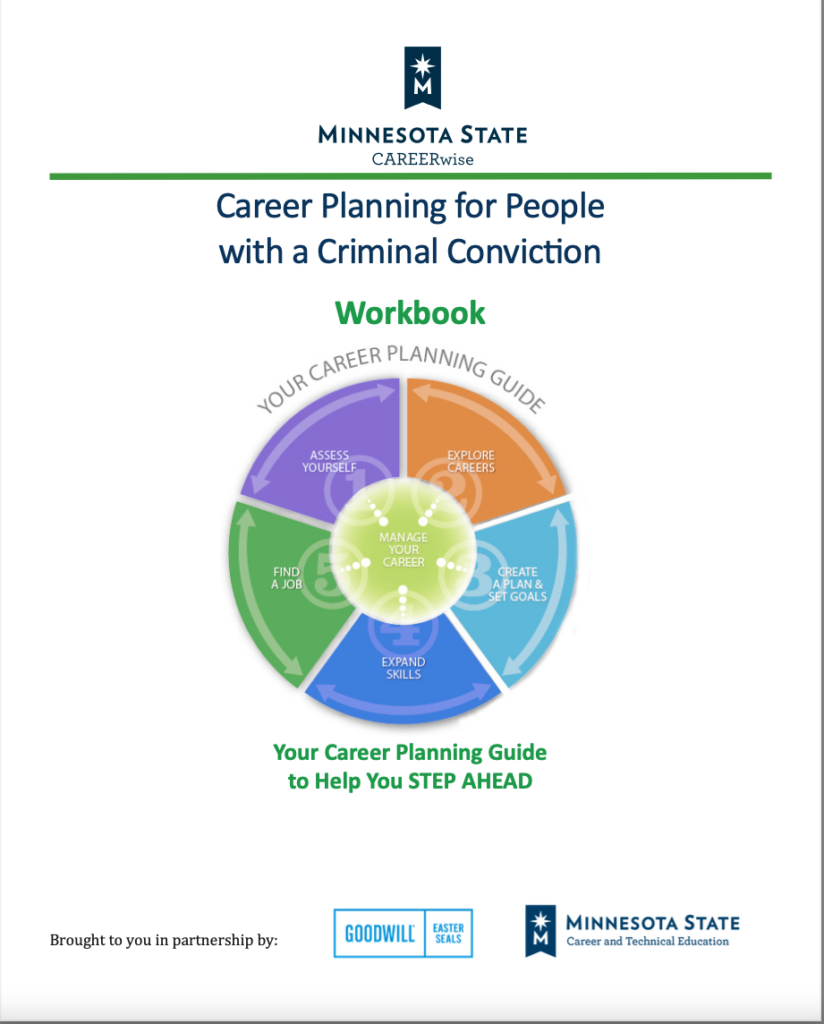
Although there are many job and career resources out there, few have impressed us more than one we discovered recently. Minnesota’s system of 26 colleges and seven universities, offers an online source of information it calls Career Planning for People with a Criminal Conviction.
And although some of the info is Minnesota-centered, most of it is applicable to anyone wherever they may be.
Among the things it has to offer is an opportunity to:
Assess yourself. In Career Planning for People with a Criminal Conviction, you can learn how to:
- Identify your strengths.
- Determine your skills (both hard skills like technology or soft skills like teamwork and customer service).
- Discover training in order to develop skills you don’t already have.
- Know your interests.
- Rank your work values.
Create a plan and set goals. You can learn how to:
- Set realistic expectations.
- Weigh options.
- Make decisions.
- Manage time.
- Set goals.
Learn about job search after release. You’ll discover:
- Common jobs for those newly released, and how those jobs can lead to higher positions.
- How jobs can be affected by a criminal record.
- The way to conduct an effective job search.
- How to understand the workplace and employer expectations.
- How to develop a resume.
- What to wear to an interview, what you might be asked and how to follow up.
And the Career Planning for People with a Criminal Conviction’s website also has an excellent workbook that you can download. Completing the exercises in this workbook will help you determine the type of job you’d like to do, the skills you have to do it and how to go about getting that job.
It includes sections on:
- Skills and interests.
- Employment opportunities.
- Evaluating your strengths.
- Values you need to have for a comfortable work environment.
- How to deal with gaps in employment.
- What to wear to an interview.
- How to discuss your conviction record.
- Employer incentives to hire you.
It also includes such tools as:
- An employment planning worksheet.
- A calendar to organize your job search.
- A chart to list members of your network and how to contact them.
- A chart that lists possibilities for references.
- An example of an application form with 20 errors to give an idea what mistakes shouldn’t be made.
- A master application form.
- Resume templates.
- Sample interview questions and spaces to answer them.
If you take the time to do the various exercises in the workbook and read the information on the Career Planning for People with a Criminal Conviction website, you will have a great head start on your job search and have the tools and knowledge to help make it successful.

